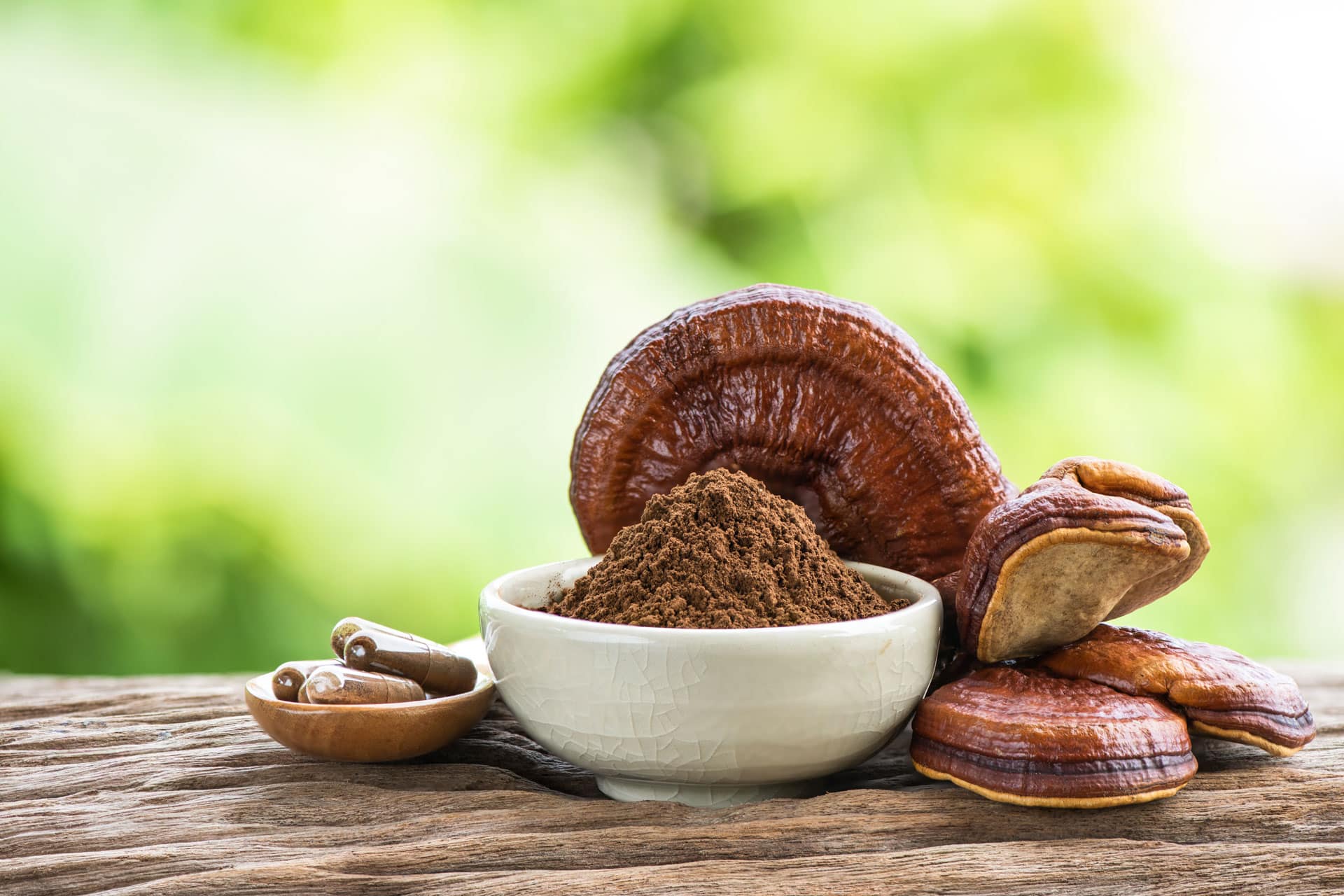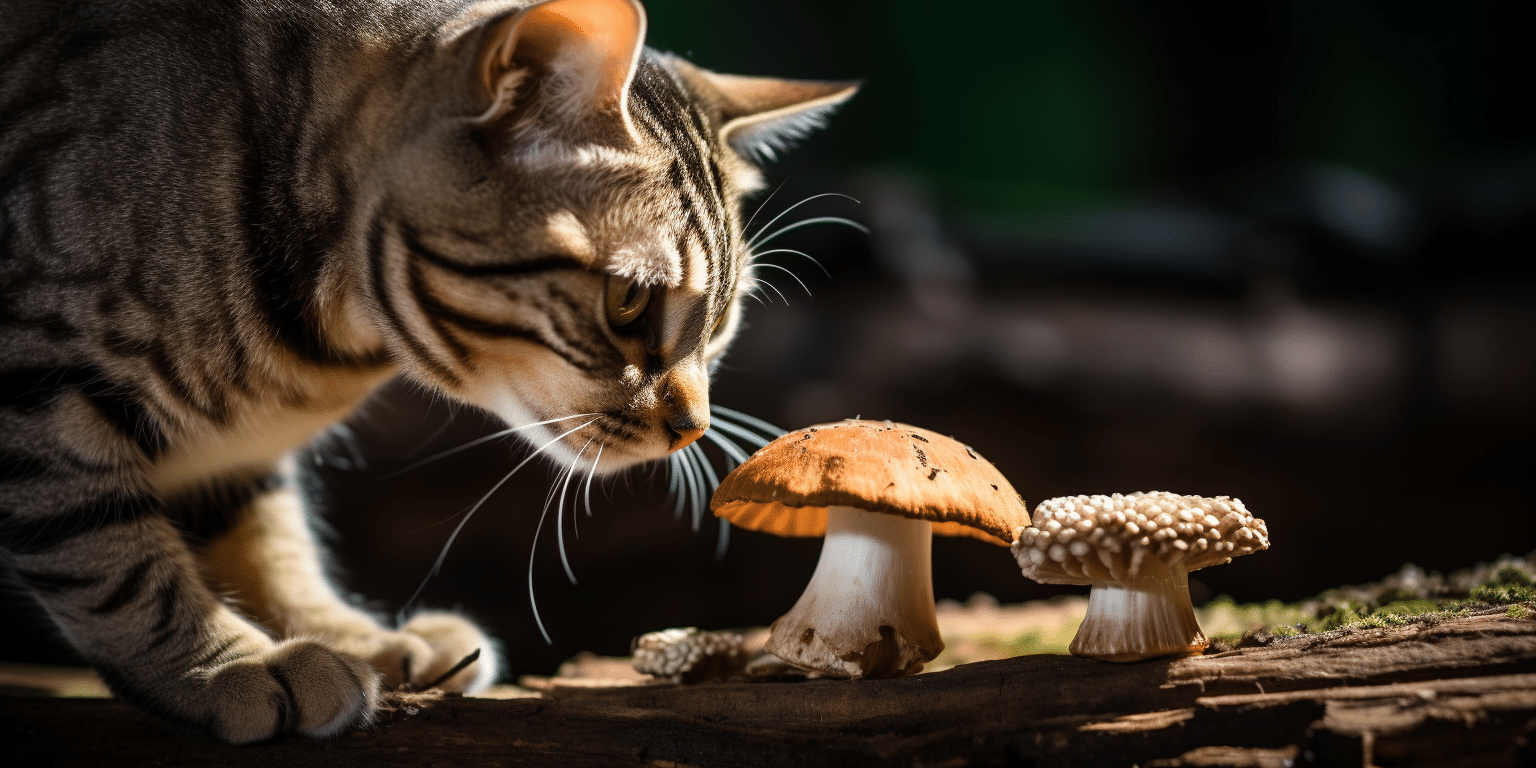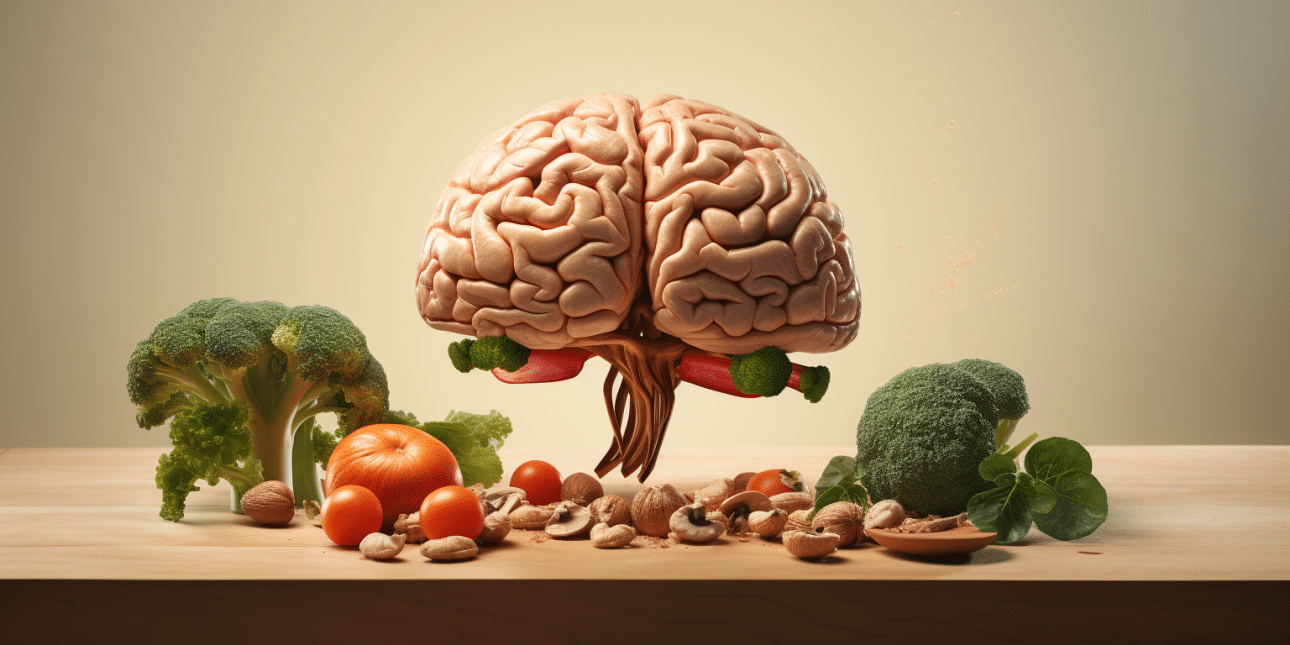Functional mushrooms can potentially help manage depression by regulating stress and mood, improving memory function, increasing resistance to stress, and providing nutrients such as Vitamin D which is vital for mood regulation.
Table of Contents
ToggleIntroduction: Understanding Depression and Functional Mushrooms
Depression is a mental health disorder that is characterized by a persistent feeling of sadness and a general loss of interest in activities. It affects an individual’s day-to-day life, impacting their ability to work, study, eat, sleep, and enjoy once pleasurable activities.
This prevalent condition is far from being just a personal issue. According to global statistics, depression accounts for 4.3% of the global burden of disease, making it one of the largest single causes of disability worldwide.1 Moreover, it has been observed that this condition especially takes a toll on women’s health.
The recent COVID-19 pandemic has further exacerbated the situation. The incidence of depression has increased significantly during this time due to factors such as fear of the virus, social isolation, and economic instability. Given its widespread impact on our society, it’s crucial to understand ways to manage depression effectively.
Functional Mushrooms for Managing Depression
One potential natural therapy that stands out in this regard is the use of functional mushrooms. These are not your everyday culinary mushrooms but rather a group of fungi that have been consumed by humans around the globe for thousands of years due to their various health benefits.
Used as medicine in traditional healing practices like Chinese medicine and the ancient Ayurvedic discipline of India, these mushrooms have gained recognition for their therapeutic properties. They are touted for their ability to balance the immune system, aid with sleep, and provide an energy boost.
In our quest for effective depression management strategies, could these functional mushrooms hold some answers? As we delve deeper into exploring this fascinating topic, we invite you to join us on this intriguing journey towards understanding depression and the potential role functional mushrooms could play in its treatment.
The Science of Medicinal Mushrooms for Depression
Medicinal mushrooms, a subset of the fungi kingdom, have been revered for their health benefits for centuries. Not to be confused with common culinary varieties, these fungi offer an impressive array of medical advantages. From improving blood sugar levels and boosting immunity to reducing inflammation in the body, the health benefits of medicinal mushrooms are diverse and plentiful.
But these benefits are not limited to just physical health. Medicinal mushrooms also exhibit antioxidant, anti-neuroinflammatory, and neuroprotective effects.2 These properties make them powerful allies for our brain health and overall nervous system.
Supporting immune function is another strong suit of these fungal powerhouses. They can help fight cancer and slow aging, thereby contributing to longevity.3
Just like a bouquet of flowers, each variety of medicinal mushroom has its own subtle differences and unique benefits. While some might be more effective in boosting immunity, others might excel in providing neuroprotective benefits.
How Functional Mushrooms Can Alleviate Depressive Symptoms
Depression is often linked to chronic stress and an imbalance in our neurotransmitters – chemicals that transmit signals in the brain. Interestingly, it appears that functional mushrooms may increase resistance to stress by acting in a similar manner to some of these neurotransmitters.
The compounds found in mushrooms interact with the Hypothalamic-Pituitary-Adrenal (HPA) axis – our central stress response system. By doing so, they help regulate stress and mood, as well as improve memory function. This interaction with the HPA axis could potentially alleviate depressive symptoms.4
Moreover, studies show that mushrooms can have positive impacts on mental health conditions such as depression, anxiety, post-traumatic stress disorder (PTSD), and more. Because mental health issues often co-occur, having a natural remedy that can address multiple conditions is indeed promising.
Do you need custom
white label functional mushroom products
for your cannabis business?
SEE WHAT WE CAN DO
Do you need custom white label functional mushroom products produced for your CBD business?
SEE WHAT WE CAN DO
The Role of Vitamin D Found in Mushrooms
One particular nutrient found abundantly in mushrooms deserves special mention – vitamin D. Known as the “sunshine vitamin,” it plays a crucial role in maintaining bone health and bolstering our immune system. Interestingly, unlike most plants that don’t naturally contain this vitamin, mushrooms are an exception.
Vitamin D is also vital for our mood regulation. A deficiency in this nutrient has been linked to mood disorders including depression. Thus, consuming vitamin D-rich foods like mushrooms could potentially improve mood and contribute towards managing depression effectively.
While more research is needed to fully understand how medicinal mushrooms work on depression at a molecular level, their potential as a natural therapy for this prevalent mental health disorder cannot be overlooked.
Traditional Chinese Medicine (TCM) Perspective on Depression and Mushrooms
Traditional Chinese medicine (TCM), with its roots stretching back to ancient times, offers a unique perspective on depression. Unlike the conventional medical model that often focuses on neurotransmitter imbalances, TCM views depression as a result of stagnant energy or ‘qi’ in the body.
TCM View on Depression – Stagnant Energy (Qi)
In TCM, ‘qi’ is the vital energy that circulates through our bodies, maintaining our health and vitality. When this energy flows freely, we experience good health and wellbeing. However, when qi becomes blocked or stagnant, it can lead to physical or emotional malaise.
From a TCM perspective, depression is not merely an emotional disorder but rather an indication of a deeper imbalance within the body. This imbalance is often attributed to stagnant qi. When our life force or energy cannot flow freely, it creates an internal environment that is conducive for depression to set in.
TCM’s Approach to Treating Depression – Regulating Qi, Promoting Circulation, Using Herbal Supplements
Recognizing the role of qi in depression opens up a new approach to treatment—one that seeks to restore balance and free up the flow of energy. So how does TCM go about treating depression?
The treatment involves a combination of techniques aimed at regulating qi and promoting its circulation. These techniques include counseling, acupuncture, exercise, and importantly, herbal supplements.
Herbal supplements form a vital part of TCM treatments for depression. They are used not just for their direct effects on mood but also for their ability to regulate qi and promote its free flow throughout the body.
As we continue exploring the role of mushrooms in managing depression, it’s worth noting that many medicinal mushrooms are valued in TCM for their ability to regulate qi and restore balance in the body. Could this ancient wisdom provide us with new insights into managing depression? Only further research will tell.
Highlighting Specific Types of Functional Mushrooms for Depression
In the world of functional mushrooms, there is a myriad of species, each offering a unique set of health benefits. Let’s delve deeper into some specific types that hold potential benefits for those managing depression.
Chaga: A Powerful Antioxidant
Chaga, a type of fungus that grows primarily on birch trees in cold climates, is known for its high antioxidant content. The extract from this mushroom can help prevent the production of cytokines, which cause inflammation in the body.5 By combating oxidative stress and inhibiting inflammatory compounds, chaga provides a protective shield against inflammation and may even offer protection against cancer.
When it comes to managing depression, reducing inflammation and oxidative stress in the brain could potentially alleviate depressive symptoms. While more research is needed to understand the full extent of chaga’s impact on depression, its anti-inflammatory and antioxidant properties certainly make it an interesting candidate for further exploration.
Cordyceps: An Energizer for Kidneys and Lungs
Cordyceps is another mushroom highly valued for its health benefits. From a traditional Chinese medicine perspective, cordyceps may be beneficial for depression management as it provides benefits to kidneys and lungs—organs that are often affected by depression according to this ancient medical system.5
Beyond this, cordyceps contains adenosine, a heart-protective compound. It can improve physical performance, speed up muscle recovery after workouts, enhance cellular energy, increase insulin sensitivity, improve blood flow and also has immune-boosting and cancer-preventive properties. Considering the broad spectrum of benefits that this mushroom offers, it’s worth considering in holistic strategies for managing depression.
Lion’s Mane: A Brain Health Booster
Lion’s mane mushrooms have garnered attention for their potential role in improving cognitive health. These mushrooms have been found to improve symptoms of depression, increase concentration levels and alleviate anxiety. They also encourage the production of bioprotein nerve growth factors and myelin—both crucial for brain health.
Furthermore, lion’s mane supports memory function and protects against cognitive decline while promoting nerve growth factor critical for the development and survival of neurons.5 With its potential to ease anxiety, reduce depression symptoms and improve sleep quality, lion’s mane presents itself as a promising natural remedy for depressive disorders.
Reishi: The Calming Mushroom
Reishi mushroom contains triterpene which can help alleviate symptoms of anxiety, depression and insomnia—a common symptom associated with depressive disorders.5 Traditional Chinese medicine practitioners often use reishi to invigorate qi (energy) and calm the mind.
In addition to these calming effects, reishi also improves immune function, protects against viral infections and inhibits cancer cell growth.3 With its potential to ease anxiety and reduce stress while promoting cognitive health, reishi holds promise as an adjunct therapy for managing depression.
Shiitake: Keeper of Cardiovascular Health
Shiitake mushrooms are another variety that could potentially aid in managing depression. A study found a correlation between shitake mushroom consumption and reduced risk of depression.5
Apart from their potential mood-enhancing properties, shiitakes also contain compounds that inhibit absorption and production of cholesterol in the liver. They can lower cholesterol levels, reduce blood pressure protect against atherosclerosis (build-up of fats in arteries), improve cardiovascular health reduce inflammation improve immune response inhibit bacterial viral infections may protect against cancer,
Wuling Shen: The Traditional Healer
Wuling Shen is traditionally used in TCM treatment for insomnia, trauma, and depression. It has also been show to have antioxidant, liver-protective, and immune-boosting properties.5
While less known than other varieties discussed above, Wuling Shen holds promise due to its traditional use for mental health conditions including depression.
Safety Considerations Using Medicinal Mushrooms for Depression
While medicinal mushrooms offer a myriad of health benefits, it’s essential to approach their use with caution and respect for their potent properties. Let’s delve into some important safety considerations.
Importance of Seeking Medical Advice Before Consumption
Before beginning any new regimen involving medicinal mushrooms, it’s crucial to seek medical advice. Every individual is unique, and what works well for one person may not be suitable for another due to potential risks associated with high doses or specific interactions with medications.
Moreover, it’s recommended to take functional mushrooms for the long-term to fully experience the benefits they offer in managing conditions such as anxiety and depression. However, this should only be done under the guidance of a healthcare professional.
Potential Risks Associated with High Doses or Specific Interactions with Medications
Every mushroom variety comes with its own set of potential risks. For instance, high doses of reishi mushrooms may cause an increased risk of bleeding in some people, especially if used before or during surgery.
Chaga mushrooms contain a protein that prevents blood clotting and should therefore be avoided by people taking blood-thinning medication.
Furthermore, while medicinal mushrooms are known to boost the immune system, in people with certain autoimmune conditions they could potentially overstimulate the immune response. Additionally, there are not enough studies regarding the safety of medicinal mushrooms for children.
Consult a Licensed TCM Practitioner or Doctor Before Using Medicinal Mushrooms for Depression
Given these considerations, it is highly advisable to consult with a licensed traditional Chinese medicine practitioner or a doctor before starting to use medicinal mushrooms for depression.
When buying a mushroom supplement, it’s also important to ensure it’s made from the mushroom fruiting body—the part where you’ll find an abundance of beneficial compounds like beta-glucans. Remember, your health is your wealth, and making informed decisions can go a long way in ensuring safe and effective management of depression.
Additional Research Findings on Medicinal Mushrooms & Mental Health
The exciting world of medicinal mushrooms and their potential role in mental health continues to expand with ongoing research. Among the promising findings are those involving a specific type of mushroom known for its psychoactive properties—Psilocybin.
Clinical Trials Involving Psilocybin & Impact on Depression
Psilocybin, often associated with “magic mushrooms,” is gaining recognition in the medical field for its potential therapeutic benefits for mental health conditions, particularly depression.
Numerous clinical trials have been conducted to explore the effects of psilocybin therapy on depressive symptoms. The results have been impressive, demonstrating superior efficacy compared to conventional antidepressant drugs like escitalopram.
It’s important to note that these studies involve controlled, clinical settings under the guidance of medical professionals. During these trials, patients are often given support to navigate the experience and integrate their insights into their lives afterward—a process vastly different from recreational use.
While psilocybin is not currently an FDA-approved treatment for depression, these promising findings could potentially pave the way for new treatment modalities in managing this widespread mental health disorder. This bold new frontier of research signals a bright future for understanding the full potential of medicinal mushrooms in promoting mental health.
Potential Risks & Side Effects Of Using Medicinal Mushrooms
While medicinal mushrooms offer a range of potential benefits for mental health, it’s crucial to consider the possible risks and side effects. Notably, there are specific populations for whom sufficient data is not yet available.
Insufficient Data For Certain Populations
One such population includes individuals who are pregnant or breastfeeding. The use of medicinal mushrooms during these critical periods has not been extensively researched, and as such, there is insufficient data to provide clear guidelines or assurances regarding safety.
Pregnancy and breastfeeding are sensitive times when extra caution should be taken with any supplements or medications due to the potential impact on the developing child. As such, it’s advisable for those who are pregnant or breastfeeding to avoid consuming medicinal mushrooms unless advised differently by a healthcare professional.
It’s crucial to always consult with a healthcare provider before starting any new regimen, particularly if you belong to a vulnerable group. More research is needed to fully understand the potential risks and benefits of medicinal mushrooms in these contexts. Until then, caution remains the best approach.
References
- https://apps.who.int/gb/ebwha/pdf_files/EB130/B130_9-en.pdf
- https://pubmed.ncbi.nlm.nih.gov/24654802/
- https://www.ncbi.nlm.nih.gov/pmc/articles/PMC4684115/
- https://www.healthline.com/nutrition/adaptogenic-mushrooms
- https://www.allthingshealth.com/en-us/mental-health/mental-focus/mushrooms-for-depression/









